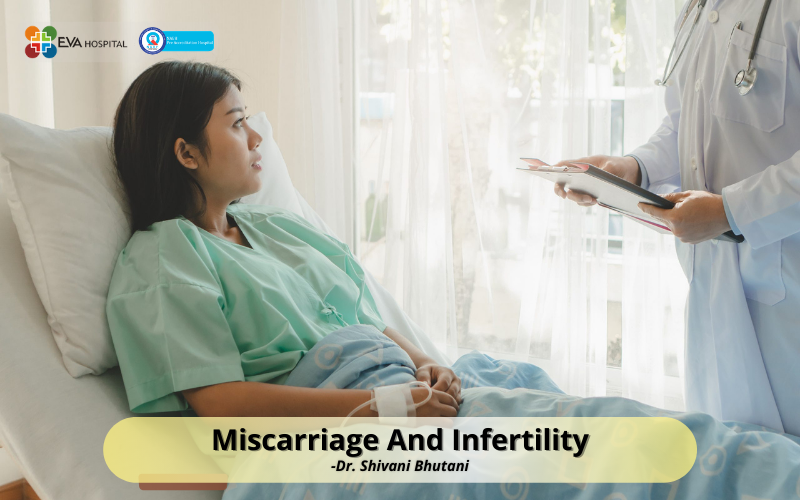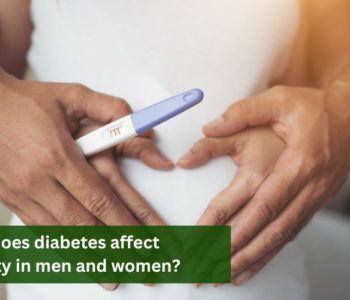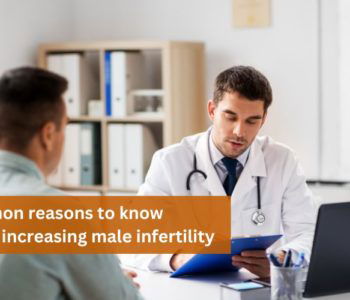Miscarriage And Infertility
 Eva Hospital
Eva Hospital
Miscarriage And Infertility
Everyone’s experience of a miscarriage is different and often compared to fertility. It all depends whether it is the first pregnancy, a second or third miscarriage or a result of a mishap. Whatever the reason may be, it is painful for both parents.
However, the main concern of couples is how it affects their fertility and future pregnancies, should they plan to conceive immediately or wait, and what precautions they can take to safeguard their next child. We will try to learn all the facts about fertility and miscarriage.
What is Miscarriage?
Miscarriage is the term used to define sudden before-time termination of pregnancy. Nearly 20% of pregnancies get aborted.
The percentage is high because most women do not even know that they have miscarried. After all, it happens so early, in the 1st to 3rd month. 80% of miscarriages occur within the first 3 months.
Can Miscarriage cause Infertility?
It is the most frequently asked question. Does miscarriage affect your fertility in forthcoming pregnancies? “In most cases, it does not,” says Dr Shivani Bhutani, Eva IVF Hospital. If one of your foetuses is lost in the 1-3 months, it is unlikely to create problems with the womb to affect the next pregnancy.
In certain kinds of miscarriage, remaining tissue may have to be removed through a process called D&C.
When we weigh miscarriage and fertility issues, you must remember that miscarrying itself does not cause infertility. It may reveal a person’s existing reproductive issues though.
If you have had more than one such experience previously, it is important to talk to your doctor.
As such, there is no conclusive evidence to establish how miscarriages affect a person’s fertility.
It affects each woman differently, making it difficult to draw conclusions. As a matter of fact, some studies have shown that conception becomes easier after an early miscarriage.
However, another report has suggested that miscarriage may marginally decrease later fertility.
How Soon Should One Try for a Child After Miscarrying?
Going through the experience of miscarriage can become very taxing for the mother, both emotionally and physically. One may want to wait a while to recover from the ordeal and plan the next pregnancy carefully.
Dr Shivani advises that a woman who has miscarried should avoid sexual intercourse for the next 15 days to let the uterus and endometrium recover and also to avoid the risk of infection.
One can try and conceive in the very next menstrual cycle as you would be ovulating in the next ten days. If you wait a month though, it becomes easier to calculate the due date without confusion.
What Is the Chance of Miscarrying Again?
If a woman has 2 or more spontaneous miscarriages, it is called recurrent pregnancy loss. The percentage of repeated miscarriage is pretty low, only 1 per cent. It means that out of 100 women who miscarry in the first trimester, only one might have another miscarriage.
However, if it happens, one should consult a fertility specialist before planning the next pregnancy. She would use your blood tests, sonography results, hormone levels, MRI or endometrial biopsy to evaluate why the body is rejecting the foetus.
Recurrent pregnancy loss can also be due to a genetic chromosomal abnormality for which the father or the mother, anyone could be contributing.
In this condition, though the parent is normal he is carrying a gene that causes chromosomal abnormality on their egg or sperm cells.
Genetic Screening can diagnose this condition. You can opt for IVF using donor eggs or sperm for a successful pregnancy.
What Can We Do to Diminish the Risk of Miscarriage in the Future?
As the reason for unsuccessful pregnancy is not directly related to fertility and isn’t clear in every case, there are no fixed formulas to keep abortions from occurring. Nonetheless, you may decrease the number of probable factors.
Before getting pregnant, have a consultation with your gynaecologist about dietary and lifestyle changes you can adopt to substantially reduce the risk factors. These may include:
- taking an everyday pre-birth vitamin tablet with folic acid for a month prior to attempting to conceive again. It not only reduces your risks but also corrects neurological defects.
- staying away from liquor, cigarettes, and
- restricting tea, coffee or caffeinated beverages. It is great for your fertility as well as for a better pregnancy generally.
Also Read:The Importance of IVF and The Possibilities it Offers
If you have encountered an unexpected abortion of your baby, remember that others have walked that road too, and there are people with whom you can connect and draw strength.
Dr Shivani says,” We counsel the patients and help couples connect. Sharing with other couples and with your partner helps your distress and be positive.









